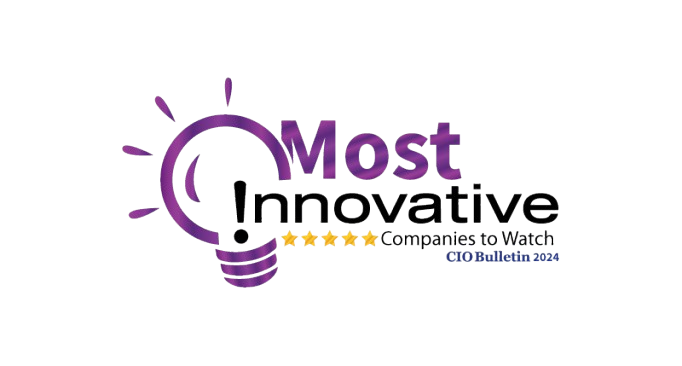Creating A CRM Strategy That Will Help Your Business Thrive
November 10, 2022
CRM implementation is a big step towards driving digitization. It helps you set up a digital solution to enhance your customer relationships and track customer interactions. Modern CRM solutions streamline several business processes, making your work easier.
Businesses often make the mistake of implementing CRM without a strategy. Never make the mistake of setting up a CRM platform at random. Make it an organized process where you are aware of the purpose and outcome.
Therefore, a robust CRM strategy is important to achieve all your business goals.
What Is A CRM Strategy?
Simply put, a CRM strategy is a strategy created to enhance your relationships with your customers while implementing CRM. It involves analyzing your business needs, defining the purpose for CRM implementation, and identifying ways to optimize the solution. A CRM strategy keeps you from going astray while setting up and using your CRM solution. It ensures that you put the right resources to use and extract maximum output from them. It helps your marketing, sales, and customer service teams make the most of the CRM tools you want to implement and enhance their productivity.
You can create a CRM strategy before or after implementing CRM within your organization. A pre-implementation CRM strategy will help you choose the right solution for your business. On the other hand, a post-implementation strategy will help you make the most of the CRM you set up. Here, the CRM solution you choose dictates the strategy you create.
Why Is A CRM Strategy Important?
Let us now have a look at a few important reasons why you should formulate a robust CRM strategy:
Enhancing Collaboration
CRM facilitates seamless collaboration between different departments, especially marketing, sales, and service. Most contacts pass through all three departments during their buying journeys. A CRM strategy brings all your teams on the same page and works in perfect sync with each other.
Effective Sales Leads Management
It takes a good CRM strategy to manage your sales leads well. From acquiring new leads to nurturing them, your strategy helps your sales reps put the CRM resources to the right use. Your CRM strategy facilitates efficient lead tracking as your contacts pass through your sales pipeline.
Creating Personalized Marketing Campaigns
A powerful CRM strategy helps you build targeted and personalized marketing campaigns. From selecting the best marketing channels to creating universal customer profiles, your strategy takes care of all important aspects of marketing campaigns. A holistic marketing campaign lets you build healthy customer relationships and boost your sales.
Winning The Right Opportunities
Your CRM strategy lets you keep an eye on all opportunities at your disposal and win the right ones. It helps your team members track all your opportunities and avoid missing out on the ones that can give you the desired results.
Providing Context-based Customer Service
Creating a well-rounded CRM strategy allows you to understand the context of your customers' and prospects' issues. It helps you streamline your cases and provide personalized solutions to everyone seeking help. Along with impressing your customers with your service, a targeted CRM strategy also makes case handling easier for your agents.
Extracting Valuable Insights
A good CRM strategy allows you to analyze your records and extract valuable insights from them. Incorporating AI tools in your CRM solution helps you predict customer behaviors, obtain sales forecasts, assess risks, and perform quality data analytics. How To Create A CRM Strategy To Help Your Business Thrive?
There is no standard procedure every business should follow to create a strong CRM strategy. It differs according to different organizations and their requirements.
However, here are a few common steps you should follow to create a robust CRM strategy that helps your business thrive:
1. Clearly Defining Your Vision And Goals
The vision and goals of your business serve as your CRM strategy base. A solid foundation will help you build a strategy that works wonders for your business.
Start by clearly defining the goals you want to achieve and the vision you have for your business. It involves identifying the purpose of CRM implementation and the outcome you are looking for. Once you have a definite purpose, you know which direction you are headed and what you want to accomplish.
Analyze the current position of your business and identify the gaps you need to fill. Identify the areas you need to strengthen and the objectives you need to fulfill.
2. Define Your Target Customers And Create Buyer Personas
Never make the mistake of catering to an audience that is too widespread. Spreading yourself thin will not help you attain your vision and goals. Ensure that you have a well-defined target audience. Depending on your business’s nature, identify the section of society that would benefit from your products/services.
Having a target audience helps you follow a focused approach. It concentrates all your efforts on catering to a specific bunch of people who are most likely to engage with your business.
It is also important to create buyer personas at this stage. A buyer persona represents an ideal customer. Think of an individual who needs to fulfill a specific need, and your product/service is the perfect solution for them. The nature of such a customer will give you a buyer persona.
3. Define The Customer Journey
CRM is all about tracking customer journeys as they engage with your business. Once you have defined your target audience and created buyer personas, you can define the journey your customers and prospects will take.
A good CRM strategy involves identifying each phase of the customer journey. This helps you provide personalized services to your customers at every stage. Map every prospect’s journey from the moment they first discover your business (whether you approach them or they come to you). Define the sources that can give you quality leads and kick-start engagement.
From lead acquisition to final purchase, make sure you are well-versed with every stage your customers will pass through. This will give your team the utmost clarity on building and maintaining healthy customer relations.
4. Set KPIs For Every Team
Key performance indicators (KPIs) quantify your performance and help you analyze how well you have done. They allow you to check how close you have come to your vision and goals. Without working with the right KPIs, you will never know how successful CRM implementation was for your business.
Once you have mapped out your customer journey, set KPIs for every team working on the CRM. These metrics will help you assess the efficiency of each of your departments. The KPIs for your marketing team should include the Lifetime Value of a Customer (LTV), engagement on multiple channels; Marketing Qualified Leads (MQLs), and more. Your sales KPIs should include lead acquisition cost, lead sources, ROI, and more. KPIs for your customer service team should include customer satisfaction score, first response time, first contact resolution, etc.
5. Choose The Right CRM Solution
This step is applicable to pre-implementation CRM strategies. Once you have identified your KPIs, you can start looking for an ideal CRM solution for your business. Work with an experienced CRM consultant to analyze your business needs and choose a CRM that best suits them.
The Final Word
A CRM strategy defines your business’s performance. It determines your approach to customer interactions and how efficiently you maintain customer relations. Customers are always at the heart of a business organization, and a robust CRM strategy helps you serve them in the best way possible.
Therefore, a robust CRM strategy is important to achieve all your business goals.
What Is A CRM Strategy?
Simply put, a CRM strategy is a strategy created to enhance your relationships with your customers while implementing CRM. It involves analyzing your business needs, defining the purpose for CRM implementation, and identifying ways to optimize the solution. A CRM strategy keeps you from going astray while setting up and using your CRM solution. It ensures that you put the right resources to use and extract maximum output from them. It helps your marketing, sales, and customer service teams make the most of the CRM tools you want to implement and enhance their productivity.
You can create a CRM strategy before or after implementing CRM within your organization. A pre-implementation CRM strategy will help you choose the right solution for your business. On the other hand, a post-implementation strategy will help you make the most of the CRM you set up. Here, the CRM solution you choose dictates the strategy you create.
Why Is A CRM Strategy Important?
Let us now have a look at a few important reasons why you should formulate a robust CRM strategy:
Enhancing Collaboration
CRM facilitates seamless collaboration between different departments, especially marketing, sales, and service. Most contacts pass through all three departments during their buying journeys. A CRM strategy brings all your teams on the same page and works in perfect sync with each other.
Effective Sales Leads Management
It takes a good CRM strategy to manage your sales leads well. From acquiring new leads to nurturing them, your strategy helps your sales reps put the CRM resources to the right use. Your CRM strategy facilitates efficient lead tracking as your contacts pass through your sales pipeline.
Creating Personalized Marketing Campaigns
A powerful CRM strategy helps you build targeted and personalized marketing campaigns. From selecting the best marketing channels to creating universal customer profiles, your strategy takes care of all important aspects of marketing campaigns. A holistic marketing campaign lets you build healthy customer relationships and boost your sales.
Winning The Right Opportunities
Your CRM strategy lets you keep an eye on all opportunities at your disposal and win the right ones. It helps your team members track all your opportunities and avoid missing out on the ones that can give you the desired results.
Providing Context-based Customer Service
Creating a well-rounded CRM strategy allows you to understand the context of your customers' and prospects' issues. It helps you streamline your cases and provide personalized solutions to everyone seeking help. Along with impressing your customers with your service, a targeted CRM strategy also makes case handling easier for your agents.
Extracting Valuable Insights
A good CRM strategy allows you to analyze your records and extract valuable insights from them. Incorporating AI tools in your CRM solution helps you predict customer behaviors, obtain sales forecasts, assess risks, and perform quality data analytics. How To Create A CRM Strategy To Help Your Business Thrive?
There is no standard procedure every business should follow to create a strong CRM strategy. It differs according to different organizations and their requirements.
However, here are a few common steps you should follow to create a robust CRM strategy that helps your business thrive:
1. Clearly Defining Your Vision And Goals
The vision and goals of your business serve as your CRM strategy base. A solid foundation will help you build a strategy that works wonders for your business.
Start by clearly defining the goals you want to achieve and the vision you have for your business. It involves identifying the purpose of CRM implementation and the outcome you are looking for. Once you have a definite purpose, you know which direction you are headed and what you want to accomplish.
Analyze the current position of your business and identify the gaps you need to fill. Identify the areas you need to strengthen and the objectives you need to fulfill.
2. Define Your Target Customers And Create Buyer Personas
Never make the mistake of catering to an audience that is too widespread. Spreading yourself thin will not help you attain your vision and goals. Ensure that you have a well-defined target audience. Depending on your business’s nature, identify the section of society that would benefit from your products/services.
Having a target audience helps you follow a focused approach. It concentrates all your efforts on catering to a specific bunch of people who are most likely to engage with your business.
It is also important to create buyer personas at this stage. A buyer persona represents an ideal customer. Think of an individual who needs to fulfill a specific need, and your product/service is the perfect solution for them. The nature of such a customer will give you a buyer persona.
3. Define The Customer Journey
CRM is all about tracking customer journeys as they engage with your business. Once you have defined your target audience and created buyer personas, you can define the journey your customers and prospects will take.
A good CRM strategy involves identifying each phase of the customer journey. This helps you provide personalized services to your customers at every stage. Map every prospect’s journey from the moment they first discover your business (whether you approach them or they come to you). Define the sources that can give you quality leads and kick-start engagement.
From lead acquisition to final purchase, make sure you are well-versed with every stage your customers will pass through. This will give your team the utmost clarity on building and maintaining healthy customer relations.
4. Set KPIs For Every Team
Key performance indicators (KPIs) quantify your performance and help you analyze how well you have done. They allow you to check how close you have come to your vision and goals. Without working with the right KPIs, you will never know how successful CRM implementation was for your business.
Once you have mapped out your customer journey, set KPIs for every team working on the CRM. These metrics will help you assess the efficiency of each of your departments. The KPIs for your marketing team should include the Lifetime Value of a Customer (LTV), engagement on multiple channels; Marketing Qualified Leads (MQLs), and more. Your sales KPIs should include lead acquisition cost, lead sources, ROI, and more. KPIs for your customer service team should include customer satisfaction score, first response time, first contact resolution, etc.
5. Choose The Right CRM Solution
This step is applicable to pre-implementation CRM strategies. Once you have identified your KPIs, you can start looking for an ideal CRM solution for your business. Work with an experienced CRM consultant to analyze your business needs and choose a CRM that best suits them.
The Final Word
A CRM strategy defines your business’s performance. It determines your approach to customer interactions and how efficiently you maintain customer relations. Customers are always at the heart of a business organization, and a robust CRM strategy helps you serve them in the best way possible.
Featured Resources
Check Our Latest Resources

Proven ROI has been recognized as one of the Most Innovative Companies to Watch 2024 by CIO Bulletin—a testament to the company’s forward-thinking approach to CRM investments and strategic partnerships. By working closely with leading CRM platforms like HubSpot, Proven ROI is revolutionizing how businesses manage customer relationships, scale their operations, and drive growth.



